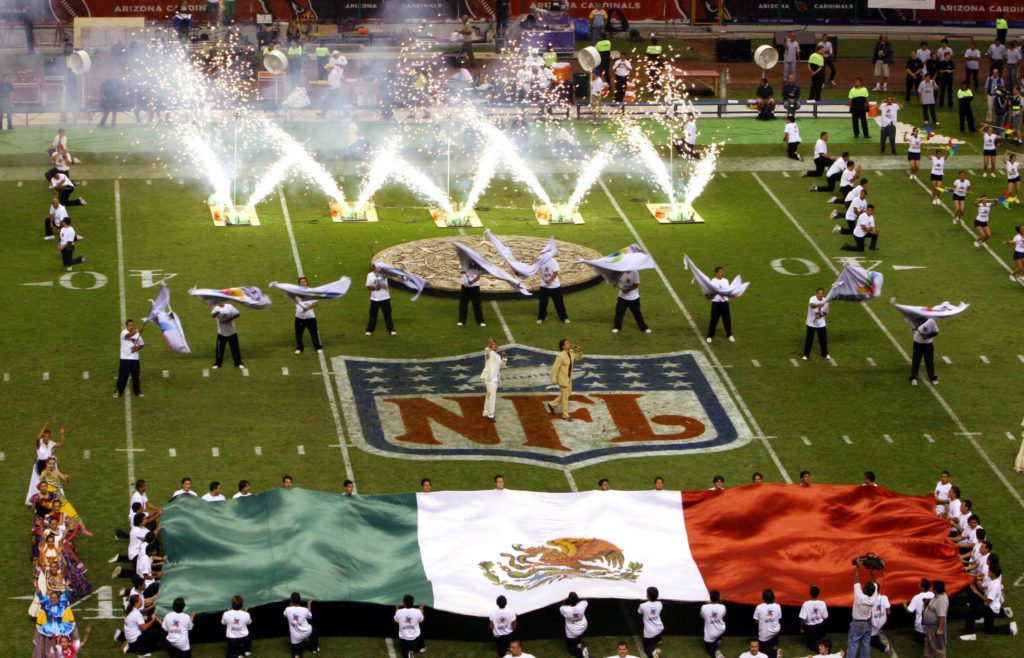This weekend, over 100 million people will be glued to their televisions as Super Bowl 51 kicks off at NRG Stadium in Houston, Texas.
The commentators, the game itself and the commercials in between are going to, once again, have a tough time trying to entertain an audience with such a diverse demographic.
Calculating success should not be a challenge as it is simply based on how many people watch the annual event. Per Statista.com, the number of people who tune into the Super Bowl has grown from an average of 74 million people in 1990 to a record-high average of about 114 million people in 2015.
There is no doubt that the success of the Super Bowl is increasing at an exponential rate, leading many to believe that the NFL will soon become a global phenomenon.
Mark Waller, the NFL’s international executive vice president, is leading the initiative to evolve the National Football League into the “International” Football League – and it makes sense. Nobody can deny the beneficial effects expanding overseas would create, such as a huge boost in revenues, competition on the playing field and an increased fan base. As an NFL fan, you might have noticed that Waller’s dream is not just a work of imagination, but rather an idea unfolding right in front of our eyes.
Dating back to 2007, the NFL has played at least one game per season in London as an attempt to establish normalization for both the American and European audience. To converge American football in an international market, the NFL is increasing the number of games played outside America.
Mexico City, Mexico, hosted a game between the Oakland Raiders and the Houston Texans this season, which was a sell out in Estadio Azteca with over 100,000 people in attendance. This matchup was the first Monday Night Football to take place in another country.
Think of Waller’s plan to expand abroad like a gardener planting a seed. By playing the first game in London during the 2007 season, the seed was planted. The NFL tended to the quality of the seed by increasing the number of games in London from just the one a decade ago to eventually four in the next season. Currently, the NFL is very close to placing a franchise expansion team in Europe, and Waller expects the expansion to take place in about five years.
“I felt in 2007 it was always a 15-year journey,” Waller said. “I think we’re on track to deliver that. I fundamentally believe we will deliver that.”
Metaphorically speaking, the seed is now a plant, and it is only a matter of about five years before it bears fruit. Waller though, does not intend to limit this expansion to one team.
According to Sports Business Daily, when Waller was asked about his vision for the NFL in the next 10 years, he responded by saying football could soon become more popular in some countries than soccer is today.
“I think we’ll be incredibly strong in Mexico, possibly even more popular than soccer by then,” Waller said. “I think we’ll be very strong in the U.K. and Germany, and we’ll be growing a really interesting niche business in China.”
The idea that American football could be just as powerful, if not more powerful, than soccer, is fascinating. Of course, it is not impossible. At one point, many people doubted the once unfulfilled prophecy that football would ever become more popular than baseball in America.
You might argue that the relationship between the NFL and an international audience is a two-way street and therefore, it’s not just about whether the NFL wants to expand, but also if an international audience wants the NFL. Would other cultures show expansion teams their pride and dedication? The answer is a resounding yes.
NFL games have proved to be a luxury, selling out 40,000 tickets in the first 90 minutes of the 2007 game in London. Wembley Stadium, which is an official football (soccer) stadium in London has 90,000 seats. Since 2007, only two of the 17 games played at Wembley have had an attendance under 80,000.
Think of sports like a rubber band for nations around the world. On both sides of the competition, you have patriotism in enthusiastic crowds, but banding them together is the competition itself. American football can be a platform for creating and sustaining friendly but competitive nationalism between nations. Using Waller’s plan to expand and integrate American football into cultures internationally could very well take the world by storm. The Super Bowl is taking place in a matter of weeks, but in a few years, there could be an NFL team from Europe or Mexico in the largest-growing championship game on the planet.
Source: The Daily Evergreen

